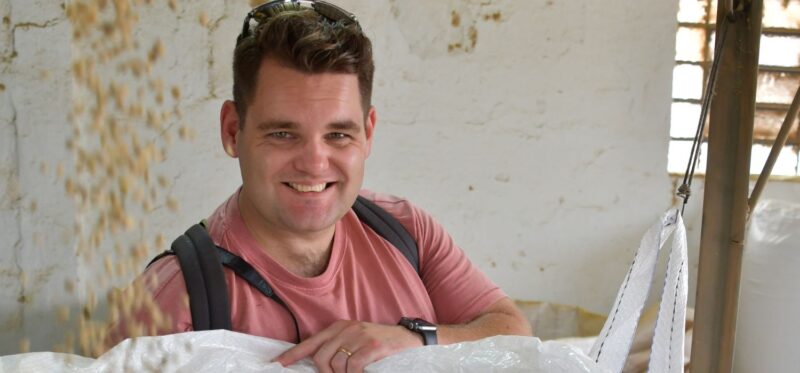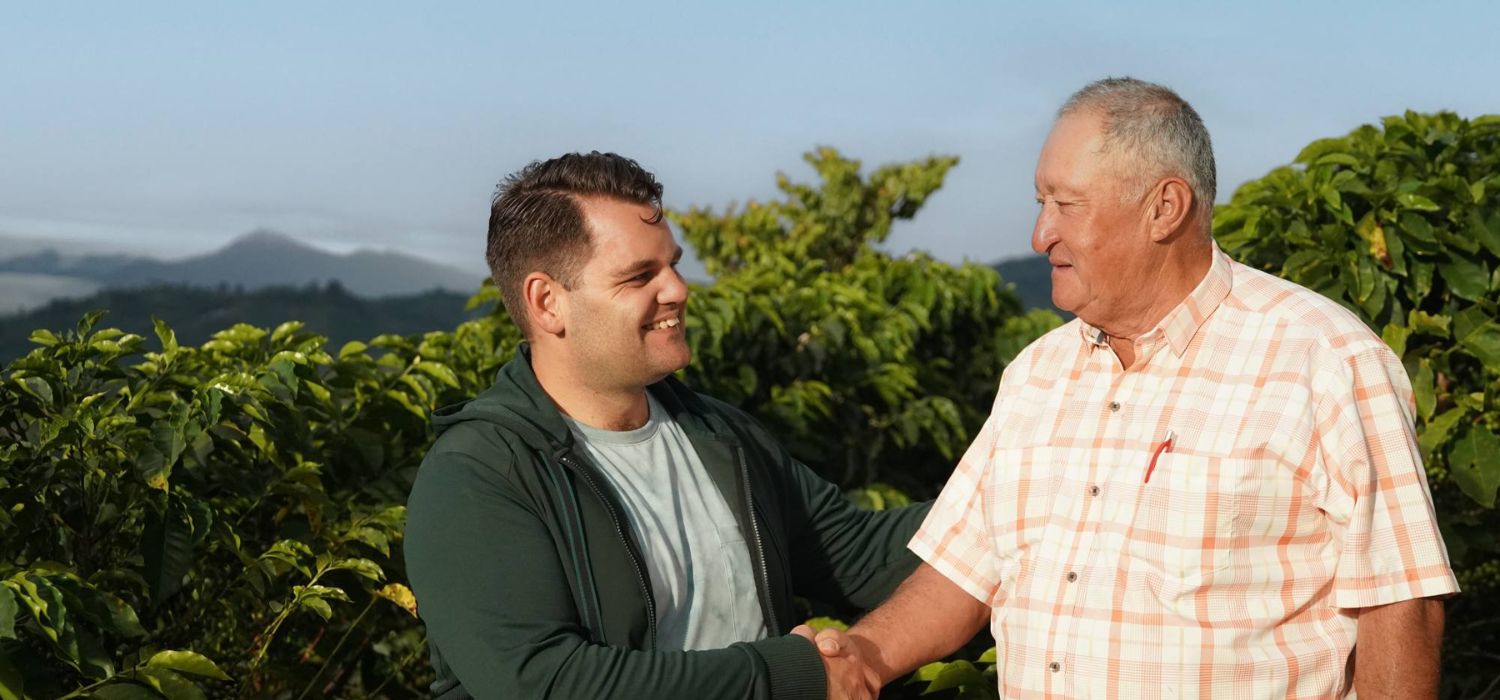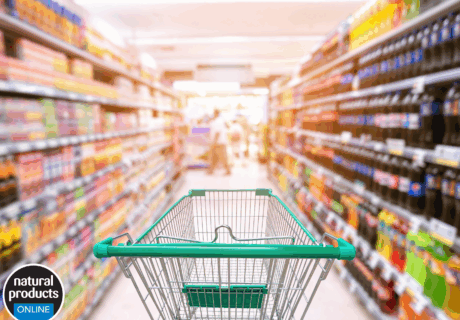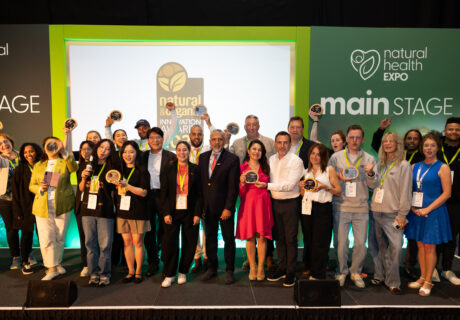Finally farmers are being paid a fairer price that reflects their hard work and expertise.
Recent headlines about the coffee industry have been dominated by the news of the price of the commodity reaching record highs, but the real story is that coffee has been sold far too cheap from its countries of origins to the West for far too long.
Just like grain, gold and oil, you can buy large quantities of coffee on the commodity market. Here, traders buy coffee at its absolute cheapest and sell it for a higher price so they can make big profits, while rural-poor farmers are regularly left to lose money on a year’s crop.
But for the past few years, the commodity market price has been higher than usual – ranging from $1.80 to over $3 per lb of Arabica coffee. The market has only ever hit what it’s at today a few times before in history.
It’s widely reported that this market high is mainly due to climate change. Whilst it’s true that extreme weather events are making it harder to grow coffee, there are a multitude of other reasons for the market high we’re seeing today.
Historically, coffee farmers have been some of the most underpaid workers in the global supply chain
Reasons for rising coffee prices
It’s true – coffee plants are fussy. Arabica in particular needs just the right temperature, altitude and rainfall to thrive. But as the climate changes, extreme weather events such as droughts, heavy rain and severe frosts are making it more difficult to grow the commodity.
At the same time, more people than ever are drinking coffee, with speciality coffee booming as more drinkers seek better quality, ethically sourced beans.
Considering that coffee production is cyclical, with alternating years of high and low yield, when a low-yield year coincides with other challenges such as extreme weather or logistical bottlenecks, the result is a significant supply shortage. This means that competition for the best lots to satisfy demand becomes fiercer than ever, pushing prices even higher.
Market speculation is also to blame for soaring coffee prices. Coffee is traded as a commodity, and its price is influenced by speculation, currency fluctuations and global economics. For instance, when the Brazilian real weakens against the US dollar, Brazilian farmers may hold back their coffee to see at a better price later, reducing immediate supply and driving up costs.
What’s more, investors and traders often speculate on future price movements, which can lead to volatility in the market and then price increases, especially during periods of uncertainty. Currently, there is huge uncertainty in the market and lots of predictions being bet on.
We also mustn’t forget that for producers, coffee isn’t just about growing beans. Farmers have to pay for labour and equipment. Once the coffee is harvested, it has to be transported, often across the world.
The global coffee supply chain has faced unprecedented disruptions over the last few years as a result of the pandemic, geopolitical tensions effectively blocking the Suez Canal, severe drought restricting transit through the Panama Canal and more – all leading to significant increase in transportation costs.
Labour shortages, wage increases, shipping delays and increased transportation costs together with inflation have also made every step more expensive.
There’s never been clearer proof that the commodity coffee market is broken. And it’s time for the industry to act.
Finding opportunity in rising coffee prices
Huge coffee companies might say that soaring coffee prices are bad news, but they’re not the negative being portrayed as by these multinational giants. In reality, farmers are finally being paid enough to live on.
Historically, coffee farmers have been some of the most underpaid workers in the global supply chain because the traditional coffee trade – or ‘Big Coffee’ as we call it – has long prioritised its own low costs and high margins, driving prices paid to farmers down to unsustainable levels.
Many smallholder farmers worldwide have lived in poverty as a result, earning far below a living wage. Now, however, everyone buying coffee is led, to some extent, by the high commodity market price to pay farmers significantly more than even the Fairtrade base price, and this will make its way into the pockets of farmers, their families and communities.
These higher prices also present a real opportunity to engage with consumers about the value of coffee, and buying and selling better, more sustainable beans. And, in the process, perhaps even incentivise the increasing number of consumers who are actively seeking out ethically sustainable products to upgrade their morning cup – particularly at a time when the price difference between instant coffee and speciality (classed as the very best) coffee is so small.

The direct trade solution
With all that said, we need to remember that many farmers worldwide are seeing less abundant harvests as a direct result of climate change, already impacted by crop disease, pests and erratic weather. Less coffee to sell means that farmers are making less money than they were before, regardless of these higher prices.
I’m also concerned about what will happen when the market drops, because it’s inevitable that we’ll see bad actors return to leaving these farmers to make a loss by paying less than the cost of production to make a quick buck.
There’s never been clearer proof that the commodity coffee market is broken. And it’s time for the industry to act.
In my eyes, the only way to buy coffee in a truly ethical way, whilst guaranteeing stable prices for the long-term and turning it into a force for lasting, positive social and environmental change – no matter what external factors are impacting the industry – is to work directly with the farmers.
For Pact Coffee, it’s vital to trade directly with the farmer, and bypass the commodity market, its traders and all the middlemen that come with it.
By trading in this way, we can guarantee that the farmer is the one to receive the premium price – last year, this was 46% above the Fairtrade base price on average – and come back, year after year, for repeat purchases.
Ultimately, the higher price is a giant leap up in quality through truly ethical sourcing for us and it’s worth every penny for us and, when explained, to our consumers too.
Written by Will Corby, Director of Coffee at Pact Coffee. Find out more about Pact Coffee here.





